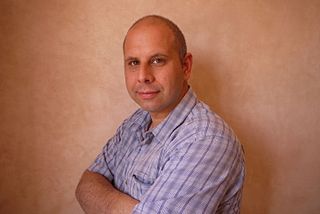A Quote by Gerald Stern
It's a kind of liberation to break free in language, if you can break free, but it's also a confinement, because form confines you - whatever the form.
Related Quotes
One of things I write about a lot is the role of women. An older friend of mine said that she feels like there's always a tension between wanting to be free and wanting to be cherished. I think that's one of the things that my whole book speaks to, wanting to break out of the confines of the roles that are prescribed for women and yet at the same time, not wanting to be totally free. You want to have intimate relationships. It's that bursting out of confinement.
To me, form doesn't always follow function. Form has a life of its own, and at times, it may be the motivating force in design. When you're dealing with form as a sculptor, you feel that you are quite free in attempting to mould and shape things you want to do, but in architecture, it's much more difficult because it has to have a function.
My feeling is, if a dog is that hard up to break free, let it go. It's like a boyfriend who wants to break up. We all know the old adage "If you set someone free, and he never comes back, then he was never yours." I understand the main fear with setting dogs loose is they could get hit by a car, but so could an ex boyfriend. That's just a chance you have to take.
Things break all the time. Glass and dishes and fingernails. Cars and contracts and potato chips. You can break a record, a horse, a dollar. You can break the ice. There are coffee breaks and lunch breaks and prison breaks. Day breaks, waves break, voices break. Chains can be broken. So can silence, and fever... promises break. Hearts break.
You are free when you gain back yourself,” Madame Wu said. “You can be as free within these walls as you could be in the whole world. And how could you be free if, however far you wander, you still carry inside yourself the constant thought of him? See where you belong in the stream of life. Let it flow through you, cool and strong. Do not dam it with your two hands, lest he break the dam and so escape you. Let him go free, and you will be free.
It is proposed that a form of free dialogue may well be one of the most effective ways of investigating the crisis which faces society, and indeed the whole of human nature and consciousness today. Moreover, it may turn out that such a form of free exchange of ideas and information is of fundamental relevance for transforming culture and freeing it of destructive misinformation, so that creativity can be liberated.





































